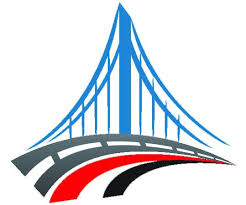Industry-Specific Reforms > Shipping, Transportation and Storage Services
Road Transportation:
- There is no distinct law that regulates road transportation, currently, it is governed by the Trade Law.
- The road transportation sector in Egypt is dominated by 5 companies; the holding companies own approximately 5% of their shares, and the remaining 95% of shares are owned by company employees and several transportation cooperatives; the five companies account for 85% of the sector, while the private sector accounts for the remaining 15%.
- Based on the latest available statistics, the total number of trucks owned by the Public Business sector companies is approximately 1,588 trucks.
- The estimated capacity of the trucking fleet in Egypt is 5,480 million tons-kilometer.
- The road transportation sector suffers from many problems that limit its efficiency and at the same time raise the cost of marketing. Among the key challenges are the following:
- The aging of the trucking fleet, particularly the refrigerated vehicles. The high costs of replacing dilapidated units (approximately LE 1million due to high customs duties and other taxes) on them) further aggravates the problem.
- Egyptian carriers lack an adequate fleet of refrigerated vehicles equipped to transport vegetables and fruits; in this regard, Jordanian and Syrian carriers are monopolizing the scene.
- Decree No. 28 of 2000, issued by the Minister of Transportation, imposes a fee of LE 10 per ton of licensed cargo (up to 40% of total licensed weight), and LE 50 per ton for every ton exceeding this threshold; imposition of these fees increases the costs of road transportation.
Responsible Entities
Date 3/21/2019
Industry-Specific Reforms > Shipping, Transportation and Storage Services
- Enact a law to regulate the road transportation sector. Develop rules and regulations to govern companies operating in the sector taking into account categorizing companies according to the volume of investment and fleet size, and including occupational health and safety standards.
- Strengthen the capacity of the General Authority for Roads, Bridges, and Land Transport to enable it to monitor the road transport activities, and develop appropriate mechanisms and guidelines for the efficient and effective management of the sector.
- Regulate road user charges (tariffs) and ensure that the tariff information is disseminated to the public.
- Adopt a multimodal transport system in all its aspects. This requires the establishment of a smoothly functioning customs system, and the adoption of the concept of door-to-door shipments, using a multimodal bill of landing. In this regard, bottlenecks associated with inland waterways and railways transportation should be addressed in order to take advantage of these important resources and optimize their use. This promises to revolutionize the transport and logistics system in Egypt, and greatly enhance the efficiency of supply chains.
- Upgrade the Egyptian land transportation fleet, and reduce, to the great extent possible, the customs duties and sales tax imposed on trucks.
- Fees imposed on vehicles should be commensurate with their design loads, so as not to increase the cost of road transport; minimal or no fees should be imposed on vehicles that do not to exceed 40-50 tons on the internal highways; LE 50 per ton should be imposed on loads that exceed this amount.
Responsible Entities
Date 3/21/2019
Responsible Entities
Date 3/21/2019
Industry-Specific Reforms > Petroleum and Mining Industry
- Governorates, local units and the General Authority for Roads & Bridges and Land Transport should not request donations or impose any additional fees on the production and transportation of minerals extracted from mines, quarries, and salterns, beyond what is mandated in the Mines and Quarries Law No. 198 of 2014 and Law 145 of 2019 and their executive regulations.
Responsible Entities
Date 6/30/2020
Responsible Entities
Date 6/30/2020

